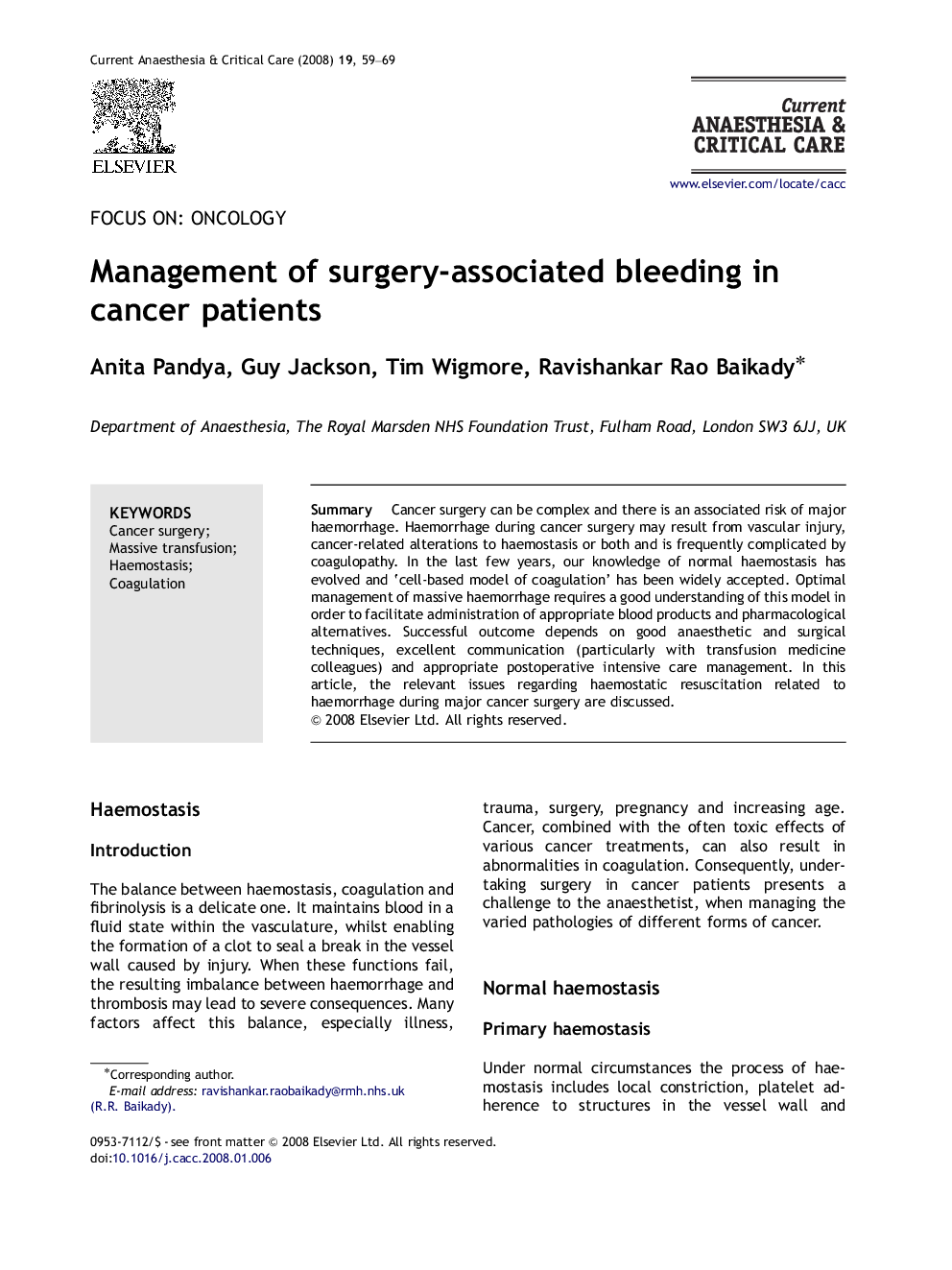| Article ID | Journal | Published Year | Pages | File Type |
|---|---|---|---|---|
| 2608025 | Current Anaesthesia & Critical Care | 2008 | 11 Pages |
SummaryCancer surgery can be complex and there is an associated risk of major haemorrhage. Haemorrhage during cancer surgery may result from vascular injury, cancer-related alterations to haemostasis or both and is frequently complicated by coagulopathy. In the last few years, our knowledge of normal haemostasis has evolved and ‘cell-based model of coagulation’ has been widely accepted. Optimal management of massive haemorrhage requires a good understanding of this model in order to facilitate administration of appropriate blood products and pharmacological alternatives. Successful outcome depends on good anaesthetic and surgical techniques, excellent communication (particularly with transfusion medicine colleagues) and appropriate postoperative intensive care management. In this article, the relevant issues regarding haemostatic resuscitation related to haemorrhage during major cancer surgery are discussed.
